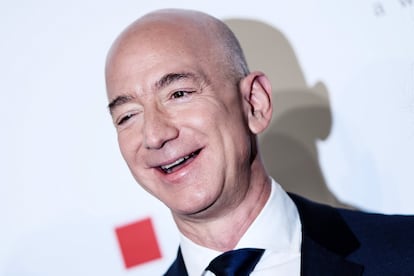Why Jeff Bezos’ dream of immortality isn’t for the rest of us
Getting old is increasingly a poor man’s business, as we move towards a world where rejuvenation is only for those who can afford it

Jeff Bezos, the richest man in the world, is 57 years old and has seemingly realized that he won’t have enough time on Earth to spend his entire $200-billion fortune. Even rocket fuel and dreams of space aren’t enough to clean out his accounts, and that makes him sad. The solution? He has created a startup with fellow billionaires, like the Russian-Israeli Yuri Milner, to reverse the ravages of aging. Instead of injecting themselves with botox, they are injecting millions of dollars into Altos Labs, recruiting some of the best scientists on the planet to come up with a formula for eternal youth. It’s a pity this is all being driven by money rather than science, as the poor man started thinking with dollars in his eyes long ago. After all, money is all he has.
The first dubious premise of this medical and scientific push to reverse aging is to assume that the most serious disease the world is facing is old age itself. If you ask medical institutions or simple citizens, you may find that they are more concerned by cancer, mental illness, multiple sclerosis, AIDS, cystic fibrosis or even Covid-19, to name just a few deadly concerns. In fact, old age may not seem like a disease to be eradicated for many people. But those people don’t have his money, so they don’t get to decide what science should devote its efforts to. That old age is a disease is not a personal interpretation; it is the mission that has inspired Altos Labs. Bezos knows that science has already succeeded in rejuvenating old mice, filling the tycoon with youthful hope.
In the world he lives in, everyone is so obsessed with the same ideas that it doesn’t occur to them to think in any other way
Another clause is also written into the small print: you can only have it if you can afford it. This is the reality of our life and times. Preserving life is everyone’s business, but rejuvenation is a personal affair. Whether it’s dental implants, hair transplants, botox, hyaluronic acid or the rejuvenating pills Bezos would like to sell on Amazon, being (and certainly looking) old is increasingly a poor man’s business. What differentiates Bezos’ dream from surgery is that rather than disguising aging, he wants to destroy it completely. If you must die, you shall, but you would have to be really poor to die of the shameful disease of old age. If Bezos’ company succeeds, we will achieve two things: the stigma of old age will get worse and the poor will suffer the most from it.
But Bezos’ obsession is neither aesthetic, scientific or even personal. He is not driven by self-interest but by ideology and and a sense of duty. The poor guy has no ideas to dream about, only zeros and ones on his balance sheet, and his big data. That is why he does not understand life, and much less so its meaning. He believes that life is made up of units of time, and is convinced that human time is synonymous with money. It is not therefore immortality that his company pursues, but justice. Justice for all the people who have dedicated their lives to earning money, generating wealth and being productive. People like himself, who deserve the right to enjoy themselves, to spend what they have earned, to finally find meaning in life.
Poor Jeff. Despite all his advisors and his entourage, no one has explained to him that his accounting is off because his thinking was wrong to begin with. Life is not about what he is pursuing. In the world he lives in, everyone is so obsessed with the same ideas that it doesn’t occur to them to think in any other way. It’s not surprising that Larry Page, co-founder of Google, is working hard on Calico Labs, a company with similar goals. In the end, if you live surrounded by technology you end up thinking through it. I don’t think Bezos is going to read this column, but just in case he does, I leave you with a quote from explorer and poet John Muir: “Longest is the life that contains the largest amount of time-effacing enjoyment.” I found it in a book by Jenny Odell – you know Jeff, those outdated print vehicles – titled “How to Do Nothing,” which I also recommend to him. Maybe if he flicked through its pages he would be investing some money (even if it’s pocket change) in thinking about the world before spending any more time (and money) changing it for the worse.
Tu suscripción se está usando en otro dispositivo
¿Quieres añadir otro usuario a tu suscripción?
Si continúas leyendo en este dispositivo, no se podrá leer en el otro.
FlechaTu suscripción se está usando en otro dispositivo y solo puedes acceder a EL PAÍS desde un dispositivo a la vez.
Si quieres compartir tu cuenta, cambia tu suscripción a la modalidad Premium, así podrás añadir otro usuario. Cada uno accederá con su propia cuenta de email, lo que os permitirá personalizar vuestra experiencia en EL PAÍS.
¿Tienes una suscripción de empresa? Accede aquí para contratar más cuentas.
En el caso de no saber quién está usando tu cuenta, te recomendamos cambiar tu contraseña aquí.
Si decides continuar compartiendo tu cuenta, este mensaje se mostrará en tu dispositivo y en el de la otra persona que está usando tu cuenta de forma indefinida, afectando a tu experiencia de lectura. Puedes consultar aquí los términos y condiciones de la suscripción digital.









































